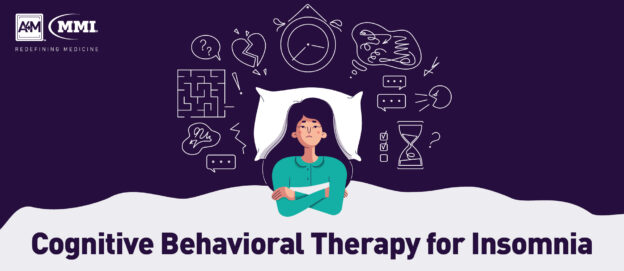Up to 32.5% of all adults in the United States report sleeping for less than seven hours per night on average despite needing between seven and nine hours of sleep. The problem of insomnia affects between 10% and 35% of adults, varying in duration, severity, and treatment outcomes. For some, insomnia can present as a brief problem while other patients may struggle with severe, chronic insomnia – both can have a negative effect on overall health, increasing the risk of mental health disorders, lowering quality of life, and raising blood pressure.
Sleeping medications are often prescribed to help patients resume a normal, healthy sleep schedule although these risk dependency and may lead to unwanted side effects. Cognitive behavioral therapy for insomnia, also known as CBT-I, is short, structured, and evidence-based approach to combating insomnia that can benefit the majority of patients with sleep problems. CBT-I can be beneficial for individuals with primary insomnia as well as those with chronic pain and mental health disorders.



